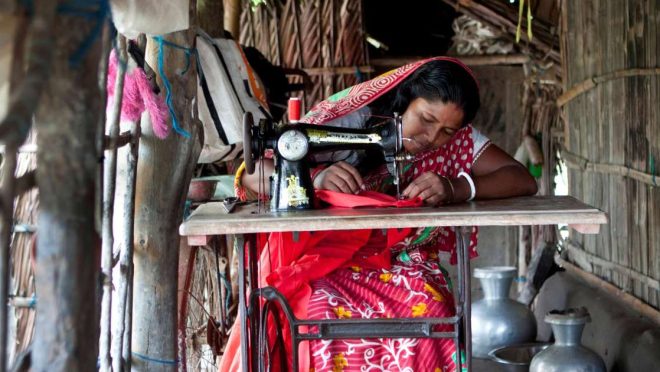Formalising the informal manufacturing sector for prosperity and sustainability
In this transformative odyssey, these KPIs are not just numbers; they are shared milestones, collective markers of progress. Together, they narrate a story of a brighter, more prosperous, and environmentally responsible Bangladesh. This journey belongs to every citizen, every business, and the vision we are forging.
Formalising the informal manufacturing sector for prosperity and sustainability
In this transformative odyssey, these KPIs are not just numbers; they are shared milestones, collective markers of progress. Together, they narrate a story of a brighter, more prosperous, and environmentally responsible Bangladesh. This journey belongs to every citizen, every business, and the vision we are forging.

In the heart of Bangladesh’s economic landscape lies an ambitious endeavour to formalise the nation’s informal manufacturing sector. Recognising the potential for economic growth, job creation, and environmental sustainability, a pioneering intervention has been set into motion. However, the success of this transformative journey hinges on the ability to effectively measure and demonstrate its impact. In a bid to shed light on the road ahead, we present a comprehensive Results Measurement Strategy designed to capture the essence of this remarkable initiative.
Key Performance Indicators (KPIs) have been carefully selected to gauge the tangible outcomes of this project. These indicators not only signify the project’s commitment to formalising the informal but also highlight its contribution to the nation’s economic prosperity, job creation, and environmental well-being.
KPIs of the process of formalising the informal manufacturing sector of Bangladesh
- Increase in the number of registered informal manufacturing businesses:
KPI: The percentage change in the number of registered businesses.
Rationale: This KPI serves as a fundamental indicator of the intervention’s success, measuring the growth in registered businesses and signifying the transition from the informal to the formal sector.
- Growth in revenue generated by the formalised sector:
KPI: The percentage change in revenue from the formalised sector.
Rationale: Economic impact assessment is paramount. This KPI quantifies the increase in revenue generated by formalised businesses, reflecting a significant economic transformation.
- Job creation and reduction in informal labour practices:
KPI: The number of new jobs created in the formal sector.
Rationale: The number of new jobs created in the formal sector is a vital social outcome. This KPI signifies the project’s contribution to sustainable economic development.
- Environmental sustainability indicators:
KPI: The percentage reduction in waste generation.
Rationale: Recognising the importance of ecological responsibility, this indicator gauges the project’s positive ecological impact by reducing waste generation.
KPI: The percentage reduction in energy consumption.
Rationale: Similar to waste generation, this indicator measures the project’s impact on environmental sustainability by reducing energy consumption.
- Contribution to the country’s GDP:
KPI: The percentage change in the project’s contribution to the country’s GDP.
Rationale: This KPI gauges the project’s contribution to the nation’s overall economic growth, reflecting its macroeconomic impact.
- Tax generation:
KPI: The increase in tax revenue generated by the formalised sector.
Rationale: Tax generation is a significant measure of the project’s contribution to the national exchequer, demonstrating fiscal benefits.
In this transformative odyssey, these KPIs are not just numbers; they are shared milestones, collective markers of progress. Together, they narrate a story of a brighter, more prosperous, and environmentally responsible Bangladesh. This journey belongs to every citizen, every business, and the vision we are forging. Success is measured one KPI at a time, celebrating each step toward a stronger, more sustainable Bangladesh.


